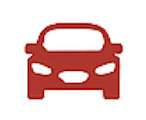Exploring the Unique and Evolving Car Culture in Nigeria
An Overview of Nigeria's Growing Automotive Landscape
Nigeria's car culture has undergone a rapid transformation in recent decades, driven by urbanization, population growth, and the expanding middle class. From the bustling streets of Lagos to the quieter roads of Enugu, cars are not only essential for mobility but also symbols of status and economic progress. As public transport systems struggle to meet demand, private car ownership has increasingly become a necessity in many Nigerian cities.
The importation of used vehicles, particularly from the United States and Europe, remains a major factor in shaping the local car landscape. These imported vehicles, often referred to as 'tokunbo' cars, make up a significant portion of the Nigerian vehicle fleet. This reliance on used imports has also given rise to a strong automotive aftermarket industry, with mechanics, parts dealers, and modification specialists thriving in urban centers.
Tokunbo Cars: The Backbone of Nigerian Car Ownership
Tokunbo cars, a term derived from Yoruba meaning 'from overseas,' dominate Nigeria's roads. These vehicles are usually pre-owned imports and are often more affordable than brand-new cars. For many Nigerians, owning a tokunbo car is the first step toward personal mobility and independence. These vehicles provide an accessible entry point into car ownership and are popular across socioeconomic classes.
While they offer affordability, tokunbo vehicles also present challenges. Many arrive with high mileage, outdated emissions standards, or require significant maintenance. Nevertheless, a thriving ecosystem of skilled technicians and spare parts sellers has developed to keep these cars running. This secondary market not only supports employment but also fosters a vibrant repair culture among car owners.
Car Modifications and the Custom Scene in Urban Nigeria
In major cities like Lagos, Abuja, and Port Harcourt, car customization is an expression of personality, creativity, and status. Modified cars often feature enhanced sound systems, custom paint jobs, alloy wheels, and tinted windows. This subculture is particularly strong among young men, who use customization to stand out and showcase personal flair.
Car audio competitions, street meets, and weekend cruises are part of this urban automotive expression. These events provide a space for enthusiasts to share ideas and build community around their shared passion. Businesses specializing in automotive detailing, vinyl wraps, and performance enhancements have found a steady clientele among Nigeria's car-loving youth.
Although these modifications are popular, they occasionally clash with regulatory efforts aimed at road safety. The Federal Road Safety Corps (FRSC) has issued guidelines on allowable modifications, and enforcement varies by region. Nonetheless, the enthusiasm for car customization continues to grow, blending global trends with local tastes.
Car Clubs and Communities Across Nigeria
Car clubs have become increasingly common in Nigeria, offering members a sense of belonging and shared identity. These clubs often organize charity drives, social gatherings, and car rallies, promoting road safety awareness and camaraderie. Some of the most notable car clubs include Supercars of Nigeria and the Nigerian Auto Sport Association, both of which regularly host events that draw large crowds.
These communities serve more than recreational purposes. They are platforms for education on vehicle maintenance, responsible driving, and even career development in auto-related fields. Membership in a car club can be a networking opportunity, especially for young professionals in urban areas. Car enthusiasts across states like Ogun, Anambra, and Kaduna are also establishing regional clubs tailored to local conditions and preferences.
Cultural and Religious Influences on Car Ownership and Use
In Nigeria, cars often carry deeper cultural and symbolic meanings. In some regions, owning a vehicle can mark a rite of passage, symbolizing maturity, success, or entry into a particular social class. During weddings, funerals, or religious festivals, cars are used in convoys or parades, often decorated elaborately to mark the occasion. This ceremonial use of vehicles underscores their role in both daily life and milestone events.
Religious leaders and traditional rulers are frequently seen in luxury cars, which further cements the association between vehicles and status. Churches and mosques sometimes offer cars as prizes during fundraising events or as gifts for special recognition. These practices reinforce the cultural perception that cars are not only tools but also tokens of divine or communal favor.
Challenges Facing Nigerian Drivers and Automotive Development
While car ownership is on the rise, drivers in Nigeria face a number of systemic challenges. Poor road conditions, particularly outside major cities, can significantly affect vehicle longevity and safety. Potholes, lack of signage, and inadequate drainage during rainy seasons all contribute to a difficult driving environment. These infrastructure issues necessitate frequent repairs and have made durable vehicles highly desirable.
Fuel prices and availability also play a critical role in car use. Although Nigeria is a major oil producer, domestic fuel shortages and fluctuating prices have led to unpredictability for drivers. This has increased interest in fuel-efficient vehicles and, more recently, electric vehicles (EVs), though adoption remains limited due to charging infrastructure constraints.
Government initiatives aimed at boosting local car manufacturing, such as support for the Innoson Vehicle Manufacturing Company, reflect attempts to build a more sustainable automotive sector. However, import dependency, regulatory inconsistencies, and cost barriers continue to hamper widespread progress.
